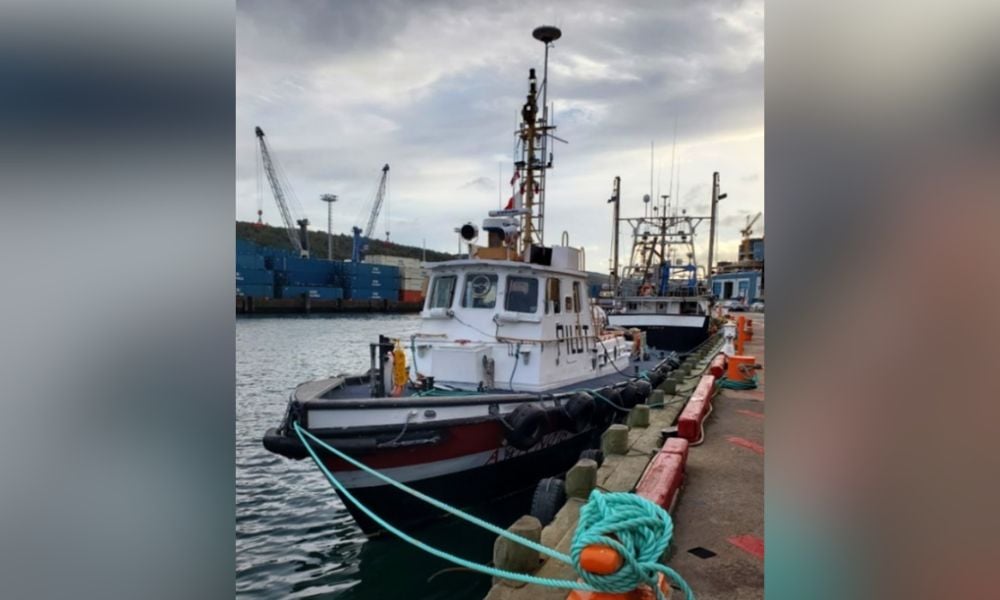Deckhand falls overboard, and their floatation device failed to inflate

The design of a marine vessel’s wire and tether system could not prevent one deckhand from going overboard and losing their life in the line of work back in 2022, according to a report from the Transportation Safety Board of Canada (TSB).
The incident happened on Sept. 26, 2022, when pilot boat A.P.A. No. 18 set out with the master, a deckhand, and a pilot on board to complete a pilot transfer operation to an inbound vessel near the entrance to St. John’s Harbour.
At approximately 23:57 Newfoundland Daylight Time that day, shortly after completing the pilot transfer, the deckhand on the pilot boat fell overboard approximately 2 nautical miles east-southeast of the entrance to St. John’s Harbour, Newfoundland and Labrador.
The deckhand’s personal flotation failed to inflate.
Both the master of the pilot boat and crew members on board the inbound vessel attempted to recover the deckhand. The deckhand was recovered by the inbound vessel after being in the water for approximately 20 minutes. The inbound vessel returned to port where the deckhand was pronounced dead.
The crew of A.P.A. No. 18 used a wire and tether system to reduce the risk of going overboard. However, the system’s design and installation prevented the crew members from being continuously connected to the wire as they moved on the vessel, according to the TSB.
“The system design required crew members to disconnect their tether while transitioning from the side to the front of the wheelhouse, which contributed to the deckhand being untethered and subsequently falling overboard,” TSB said.

Source: Transportation Safety Board of Canada (TSB)
The TSB also noted a lack of preparedness on the side of masters and crew members of the pilot boat to ensure safety.
While masters and crew members were required to, and often did, conduct person-overboard drills, these drills were exercised in the calm waters of St. John’s Harbour and with a deckhand available to help.
“As a result, the drills did not reveal that a single person could not manoeuvre the vessel and rescue an unconscious person from the water using the available recovery equipment. This impacted the level of emergency preparedness and made it practically impossible for the master alone to retrieve the deckhand from the water,” said TSB.
The TSB investigation also revealed that if a company’s safety management system does not facilitate the flow of safety information from the operational level to management, there is a risk of vessels operating with hazards that are known but without adequate defences, said the government agency.





